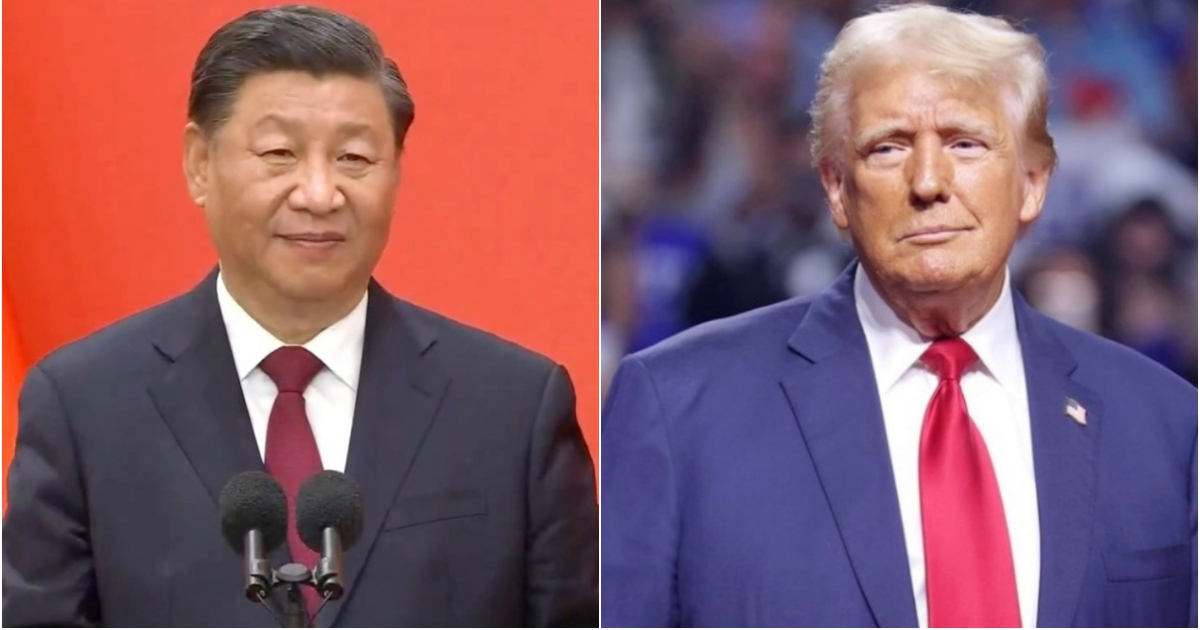The ongoing trade war between China and the United States shows no signs of easing. On Wednesday, the Chinese government declared it would raise tariffs on American imports from 34% to 84%, beginning April 10. This move is a direct retaliation against President Donald Trump's recent decision to impose an additional 50% tariff on Chinese goods, bringing the total duties on these products to 104%.
China's Firm Response
The Chinese Ministry of Finance justified this heightened tariff as a reaction to what it described as the "repeated mistake" by the United States of consistently increasing tariffs on Chinese products. The new 84% duty is set to take effect on Thursday, April 10.
In addition to the tariff action, China's Ministry of Commerce announced the inclusion of 12 American firms on its export control list. These companies, operating in strategic technological sectors, include drone manufacturers like BRINC, aerospace firms such as Novotech, specialized engineering firms like Marvin Engineering Company, and radar manufacturers like Echodyne.
Simultaneously, six other companies have been added to the list of unreliable entities, including Cyberlux and Sierra Nevada, noted for providing military equipment. According to Chinese authorities, these restrictions aim to prevent the exchange of dual-use civilian and military products, thereby limiting the transfer of sensitive technology amid the escalating tensions.
Trump's Defiant Stance
President Trump defended his tariff decisions with a bold rhetoric, claiming that China is "desperate" to make a deal but doesn't know how to start the negotiations. He emphasized that the White House is still awaiting a call from Chinese President Xi Jinping.
In an effort to counteract the domestic repercussions of this trade war, Trump renewed his appeal to major American companies to return production to the U.S., thereby avoiding tariffs on goods manufactured in China.
Diplomatic Warnings and Escalating Tensions
Beijing's tone was equally severe, asserting that it would "fight to the end" with a "firm will" and "abundant resources" to counter U.S. economic and trade restrictions. The Ministry of Finance vehemently criticized U.S. tariffs, stating they "seriously violate China's legitimate rights and interests" and "gravely harm the rules-based multilateral trading system."
On the diplomatic front, China expressed "grave concern" to the World Trade Organization (WTO), labeling the U.S. decision as "reckless" and warning that it could further destabilize global trade.
U.S. Perspective: "A Loss for China"
From the American side, reactions were swift. Treasury Secretary Scott Bessent described China's retaliatory measures as "unfortunate" and suggested they would lead to "losses" for Beijing. In an interview with Fox Business Network, Bessent stated, “I think it's regrettable that the Chinese don't want to come to the table, because they are the worst violators of the international trade system.”
Conclusion: A Future of Uncertainty
The escalating tariff measures between the world's two largest economies have created a landscape fraught with commercial uncertainty, diplomatic strain, and market volatility. The implications of this new round of tariffs extend beyond bilateral relations, with global supply chains and international trade potentially facing significant disruptions in the coming months.
As this trade confrontation threatens to further erode the multilateral economic order and reshape global trade rules, the international community watches with increasing unease.
Key Questions on the U.S.-China Trade War
What are the new tariffs imposed by China on U.S. goods?
China has raised tariffs on U.S. imports from 34% to 84%, effective April 10, in response to the U.S.'s increased tariffs on Chinese products.
How has the U.S. responded to China's tariff increase?
President Trump defended the U.S.'s tariff decisions, claiming China is eager to negotiate but unsure how to begin. The U.S. also urged American companies to move production back to the U.S.
What sectors are affected by China's export control list?
China's export control list includes American firms in strategic technological sectors such as drone manufacturing, aerospace, specialized engineering, and radar production.
